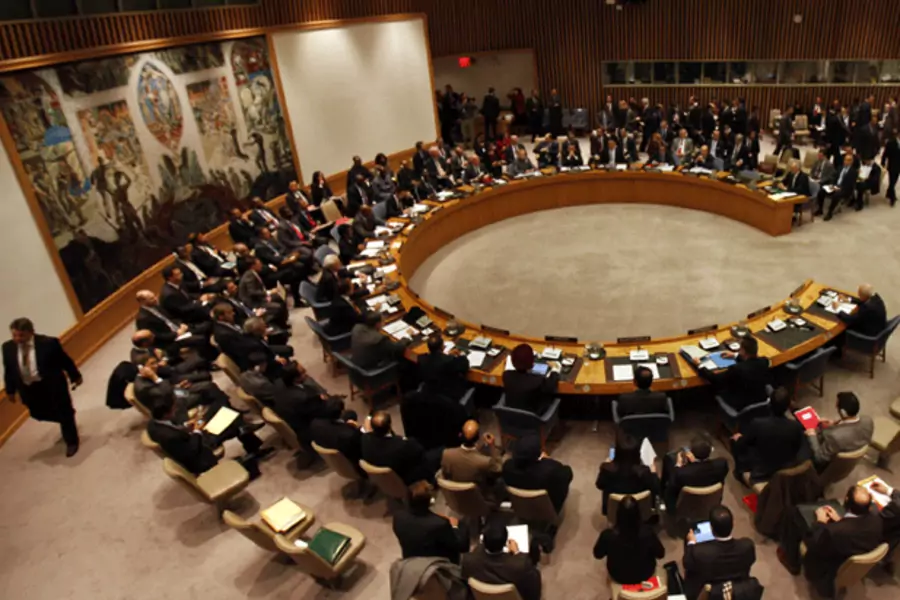The World Next Week: The United Nations Debates Syria

More on:
The World Next Week podcast is up. Bob McMahon and I discussed the current debate on whether to demand political change in Syria; the forty-eighth Munich International Security Conference; and the twentieth anniversary of the Treaty of the European Union, better known as the Maastricht Treaty.
[audio: http://www.cfr.org/content/publications/media/editorial/2012/20120202_T…]
The highlights:
- The UN Security Council is set to debate a resolution on Syria. The sticking point is over what it should say. Most Security Council members favor a version that would call on Bashar al-Assad to step aside. Russia, however, opposes any resolution that smacks of “regime change.” As the debate proceeds in Turtle Bay, the violence continues in Syria and the death toll grows. Artillery fire has been reported in Damascus, raising the possibility that events on the ground may outpace events at the UN.
- The question of what to do about Syria will likely be a hot topic at the Munich International Security Conference. Just as predictable will be Russian complaints that Europe and the United States are failing to respects its interests and views.
- Europe will be celebrating the twentieth anniversary of the Maastricht Treaty with a brave face. Then European leaders pledged to create “an ever closer union among the peoples of Europe” and set in motion events that led to the birth of the euro. Now the eurozone is in crisis. Twenty-five of twenty-seven European countries (Britain and the Czech Republic were the holdouts) agreed to a new treaty this week that would insist on greater fiscal discipline. Nonetheless, tempers behind the scenes continue to fray. Germans in particular wonder why Greece has not moved faster to implement the austerity measures it agreed to undertake in exchange for debt relief. Greeks in turn wonder why the rest of Europe asks for them for sacrifices that could be politically unsustainable.
- Bob’s Figure of the Week is $260 billion. My Figure of the Week is Mitt Romney. As always, you have to listen to the podcast to find out why.
The Washington Post discusses the UN Security Council talks on Syria, and Ed Husain writes in The Atlantic that intervention in Syria would be "at our peril." Wolfgang Ischinger, Igor Ivanov, and Sam Nunn outline in the New York Times what transatlantic security goals should be, and Deutsche Welle previews the topics likely to be discussed at the Munich Conference. The European Union’s Europa website summarizes the Treaty of Maastricht, and Reuters discusses the Czech and British decisions not to sign the EU’s latest fiscal treaties.
More on:
 Online Store
Online Store